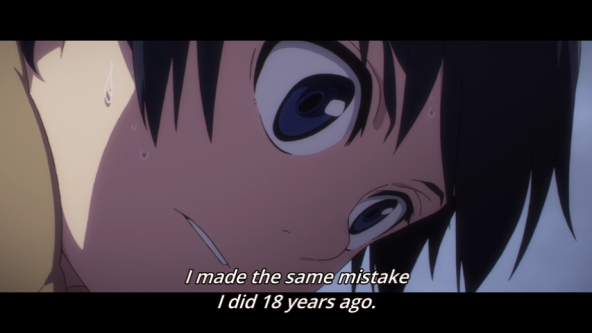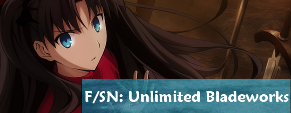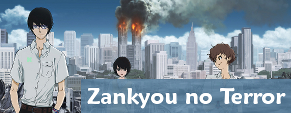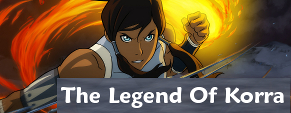Review-Roundup: Dimension W 01-03, ERASED 02/03, Showa Genroku Rakugo Shinju 02/03
![[C12] Dimension W - 03.mp4 - 00000](https://otakuness.files.wordpress.com/2016/01/c12-dimension-w-03-mp4-00000-e1453666780761.png?w=604) Well, how else are you gonna sell your anime?!
Well, how else are you gonna sell your anime?!
This time I review:
Dimension W 01-03: It’s the future. Humanity has solved its energy-problem using a new dimension – except it’s pretty shitty. To make matters worse, this shitty thing is controlled by shitty people. All that stands between them and world-destruction is one grumpy super-soldier and one moe robot.
ERASED 02/03: Being a child isn’t easy. Being your past child-self isn’t easy either. But Satoru’s gotta get his shit together – because he’s the only one who knows that Kayo’s about to get murdered. Especially since it’s confirmed that the authorities are incompetent.
Showa Genroku Rakugo Shinju 02/03: Kikuhiko is about to get left behind by Sukeroku’s talent but then WWII happens! And you know what that means…! Yes, he has to spend a long time doing boring stuff in the countryside!
Dimension W 01-03 Review:
![[C12] Dimension W - 02.mp4 - 00003](https://otakuness.files.wordpress.com/2016/01/c12-dimension-w-02-mp4-00003-e1453668013511.png?w=604) Dimension W employs some intriguing imagery to show the evil side of using coils.
Dimension W employs some intriguing imagery to show the evil side of using coils.
Dimension W is mediocre. There’s no way around it. The characters, the story, the plot: it has all been grabbed from the toolbox of the “been there, done that”-set. And yet the series is so far a great example how much you can do with good direction and cinematography. Even if the premise on the whole and the ideas behind aren’t very inspired, you can still make sure to get more than the sum of the parts out of it. What’s troubling about truly mediocre series is that you get the sense that the creators resigned themselves to “merely being mediocre”. It’s fatalism in the face of bad ingredients: If the script is mediocre why even bother making it anything more than a mediocre series…? I’m sure, most of the creators of such shows know what they’re doing and therefore they know they’re not doing the right thing. A series such as this one proves in the first episode that having a mediocre script doesn’t mean you’re unable to still produce a fun show.
What’s good about this series certainly doesn’t include its storytelling. It gets a nice presentation and the worldbuilding is somewhat decent as well. But the storytelling is neither deep nor complex here. This is a shounen-show with a very episodic setup. The series does its thing without the participation of the audience. Relationship-wise you simply get entertained instead of getting invested in the world of this series. There aren’t any tough emotional choices to make as an audience-member who you root for or who do you think the bad guy is. It’s all nicely laid out for you in a very blunt way and the only reason why it works so well is the direction and cinematography. Describing all that you certainly can image the kind of demographic this series is aiming for. The series is clearly aiming for young teenagers. Where things of course get interesting is that the bluntness of the storytelling belies what kind of tropes it chooses.
Let’s start with the world-building. Okay, you got this great new energy-source based on this new-found and so on and so forth. It’s partly a MacGuffin and a stand-in, a symbol for the world itself. The whole thing kinda reminds you of the idea of a World-Tree like in the Norse mythology with how these giant generators are standing around in big cities around the globe. Of course, it’s a bit simplistic to reduce the world to that but that’s what the series is doing. You immediately streamline the narrative by equaling the whole company responsible for the generators into a representation of law and order. It’s a world where one company controls the world by managing those giant tree stumps.
Then you’ve got Yurizaki, the genius-innovator who disappeared suddenly and the series’ story focuses on his “daughter” Mira. Her story is clearly the most relevant as this is one of those series where one character’s story-arc is closely tied to the mysteries and fate of the world (like for example Eureka in Eureka Seven or Shinji in Neon Genesis Evangelion). What’s her story about, though? And here’s where things start to get a little bit darker. Her interactions with Yurizaki and his ultimate fate establish is that the world of this series (and with that I mean, the company managing those generators) is plagued by a conspiracy. This is different from making the world a mystery that one character is closely connected to. A conspiracy presupposes ill-doing. The world becomes less a mystery and more a villain. Now it isn’t about solving a mystery, now the story’s about defeating the conspiracy.
And so it is NO coincidence AT ALL that Kyoma, our main-guy is essentially a rogue with a shady past. If the whole world is an evil conspiracy, it’s only natural to cast an independent rebellious bounty-hunter as the hero. He’s “outside the system” (which we know is corrupt) and his morality isn’t bound to the interests of the conspiracy. That’s why Mary as a sort-of underworld broker for Kyoma isn’t portrayed as shady or evil. In a setting like this one, those people are more idealistic than average people because they aren’t contaminated by “the system”. Just the fact that Kyoma doesn’t use coils at all and his only contact with coils is that he finds illegal ones is actually a good thing. Of course, Kyoma as a rogue gets idealized here. Despite rebelling against the world he’s doing fine and Albert, that stuck-up officer, even respects him for that. You can’t get more idolizing than having an obvious rebel in your story that somehow still gets a ton of respect from the police. This series idolizes a rebel whose biggest rebellion against society is avoiding it as best as he can.
It gets even worse when the series clearly telegraphs Kyoma’s character-arc. He detached himself from the world and just wants to do his bountyhunting job for illegal coils. But his biggest secret is about to come out after he has met Mira: It’s that he has a heart of gold. And suddenly he gets embroiled in all sorts of crazy adventures with Mira and he starts to care about the world. This series would need to introduce some crazy plot-twists to make me think I’m wrong about this.
But for what it is, the series works wonderfully. There’s a sense of style in this series that certainly elevates the story. A good moment like that for example was when Kyoma in the first episode is stopping in front of an exit on a highway. Beforehand everybody told him that what happened was weird and he should move. But he suddenly stops the car, cut to inside of the car, he’s like “Back there…”, then the guitar-soundtrack kicks in and he remembers that the robot-girl had taken the illegal coils. Cut back to the car and he abruptly drives back onto the highway. It’s just images as far as exposition is concerned but there’s so much condensed storytelling happening here! A lesser series would’ve painstakingly showed Kyoma inside the car saying “Wait a sec… Now I remember! That kid took… [flashback-sequence] She took the illegal coils! I can still get those coils!” and then a cut back to outside the car and him driving back onto the highway. If the series can keep up this level of stylishness, it certainly will be far more enjoyable than it has any right to be with its generic story-setup.
In the second and third episode you start to get into the episodic territory – and it’s as formulaic as you would expect. But once again a good direction saves those episodes as the story never deviates so much from the meta-plot that it starts to seem trivial. Despite the episodic stories, the plot never forgets to tie itself to the larger story of the series. So, something like the incident with Mira and the kids never becomes too cumbersome. It would’ve been easy to get bogged down by the need to moralize Mira’s struggle in the real world but the series wisely chose there to make it seem incidental on the surface and let the moralizing happen in the background of that story-arc. Equally was the story about the art-thief in the second episode a wonderful misdirect as it was very much a story connected to the meta-story of the series
Dimension W isn’t an impressive series. Its presentation is well-done and rather stylish. Sadly, this doesn’t apply to the story. What the series presents in that regard is generic and predictable. It’s the kind of story that doesn’t have any edges and seems well-written but without any inspiration or ambition. I hope the series can get better or keep this level of quality but since it is episodic, the series will probably have its ups and downs along the way. But I gotta admit: So far the series has found a great way to balance the main-story and the episodic elements.
Episodes-Rating: 7.0/10
ERASED 02/03 Review:
 Karma’s a bitch, isn’t it?
Karma’s a bitch, isn’t it?
What is most striking about the first three episodes of the series so far is how it never chooses the easy way out for a problem or situation. There’s a very distinct sense of anti-escapism permeating these three episodes. Every new situation creates new challenges. What makes this a striking element of the show is that it’s almost at odds with what you’d expect from a time-travel such as this one. Satoru has a super-power basically and yet it never seems to make his life or saving others easier. It goes beyond the Spiderman-saying of “With great power comes great responsibility.” as the series seems more concerned with the time-travel-power’s burdensome qualities.
For a story about a 29-year-old inside a 10-year-old you’d expect more wish-fulfillment. After all, when we think of going back in time to fix mistakes we think of our superiority in already knowing what has happened. The love for time-travel-stories is mostly a reflection of our selfish need to be special and great. One hopes to be special but most mistakes of the past are a humbling reminder that this may not be exactly the case. But if all these past mistakes were fixable then it would be possible to be the person we like to think we are instead of trying to accept the reality of who we really are. Considering that think about how many time-travel-stories are about fixing the present by going into the future. After all, one would like to believe humanity will make scientific breakthroughs that will ever bring us closer to a better world and now what if you could bring these wonders back into the present? But we don’t know the future and so it would be more like a daring adventure into unknown lands than a nostalgia-driven guilt-trip about fixing the past. And a nostalgia-driven guilt-trip about fixing the past is exactly what this series is.
Except the series’ script has been much more down-to-earth and confrontational than you would expect. Like the moment Satoru steps into the classroom and doesn’t know where he sits in the classroom. That self-indulgent superiority inherent in travelling to the past immediately gets confronted by the embarrassment of the emerging awkwardness. Or then there’s the moment in the third episode as he repeats a past mistake in the race with another classmate. Satoru doesn’t remember how to be his 10-year-old-self and the brilliant move of the story is to make this situation less about the plot than Satoru himself. These aren’t the scenes of a 29-year-old acting out an improved version of his 10-year-self, this is Satoru actively trying to hide himself in his well-practiced pleasant fake-persona he had adapted in his school-years – despite the fact that he should know better. Instead of fixing himself, he’s actively trying to hide himself – except now it’s the self-awareness of a 29-year-old he’s hiding. And the interesting thing how muddled things get once you wonder how much of his true nature is showing through and how much it’s just him failing to play the role of his 10-year-self because he himself doesn’t seem to know the answer.
And the difference between his fake-persona and his real persona finds itself presented in another genius-move. As he talks to Kayo in the second episode she accuses him of having a fake-persona (which is true, of course) and even while she talks of her kinship with him since she does something similar, it’s easy to notice how she keeps him at arm’s length. But there are these moments where the adult-voice in Satoru’s mind syncs up with hid child-voice indicating that he’s absolutely honest and she actually notices it. Instead of delivering smarmy speeches the definition of honesty becomes tangible in a much more down-to-earth-way than simply having a character give a moralizing speech about morality.
The editing in the second episode was also superb. There are scene-transitions in this second episode that you see SO rarely in anime-TV-series that it’s a bit of a miracle this series even bothered doing some of that stuff. Like for example when Kazu is telling Satoru he would help the latter get to have a one-on-one-talk with Kayo. Satoru and his friends are in the classroom, Kazu pushes him forward and the movement fluidly finishes with Satoru coming to a halt in front of Kayo and now they are beside a river outside. It’s the sort of fancy transition Satoshi Kon loved to use in his movies.
The visual imagery as an allegory also gets used nicely in the third episode. When the two foxes circle Satoru and Kayo and when they look at the “Christmas-tree” the series nicely establishes a sense of fate to the romantic undertones between the two characters. And it builds a nice contrast to the helplessness Satoru experiences when he finds Kayo beat up earlier in the episode.
And it’s when you’ve got a series like this one that has offered three superb episodes so far with an attention to detail you see rarely in animes and even rarer see supported by a solid script as well. If the series can keep this up for its entire run, I think, it will be very unlikely that anything in 2016 will be able to top this.
There’s also another reason to pay attention to this anime. ERASED is a manga-adaptation. More specifically, it’s the adaptation of an unfinished manga. But here’s the twist: This anime will actually have the same ending as the manga. Despite the fact that the anime will end before the manga, this anime will apparently spoil the ending of the manga. It’s a well-known issue of anime-adaptations that they are oftentimes more or less just extended advertisements for the adapted material. The anime will cover some ground but won’t end the series as a whole. Sometimes the anime will come up with its own conclusion. Or if the anime is doing well, it will just take its sweet time animating the whole series (like the Monogatari-series for example). But imagine a world where manga-authors or LN-authors can sell their planned series-ending in order to up the chances of an anime-adaptation. You’re not “selling” the manga anymore with the expectation that after the 1-cours-run of an anime every viewer will start following the manga/LN-series for the next couple years or longer. If you forego any hopes of producing series with the length of Naruto or Bleach, you can have one with a very limited duration and somewhere around 50% completion, you just sell the complete story so that it can be adapted into an anime. Then you just add something like “Hey, but the manga will have ‘extra scenes’.” in the hope that people will still buy the manga after the anime has ended. I wonder if such a model would make more money than gambling with the hope of gaining the same popularity as Naruto or One Piece. I mean, it’s certainly better than having to endure pathetic adaptations like Arslan Senki for example (not that the series is completely bad but that open ending is simply disappointing).
Episodes-Rating: 8.5/10
Showa Genroku Rakugo Shinju 02/03 Review:
![[C12] Shouwa Genroku Rakugo Shinjuu - 03.mp4 - 00004](https://otakuness.files.wordpress.com/2016/01/c12-shouwa-genroku-rakugo-shinjuu-03-mp4-00004-e1453668497127.png?w=604) World War II in Japan: What REALLY happened!
World War II in Japan: What REALLY happened!
It’s a bit of a confounding choice this series has made by following up its opening-episode with a whole flashback-arc to explain the situation in episode 01. The way Konatsu acted and what little was said about Kikuhiko’s past, you knew that something dramatic must have happened and that the whole thing was probably more complicated than Konatsu assumed. It was essentially a misunderstanding and so you’d expect the series to milk this for drama. Meanwhile, the eventual revelation of the truth would serve as a bit of a plottwist. But that this series didn’t do that shows a stronger interest in the characters than any sort of storytelling-shenanigans. And in a very slice-of-life-y way the series wants to cover the whole journey of the characters instead of chasing dramatic highpoints.
With the second and third episode this series has started a flashback-arc that still hasn’t even gotten to that dramatic moment. The series clearly takes its time here in telling the entire story of Sukeroku and Kikuhiko. It happens against the expectation of its setup in the first episode. What gets referenced in the first episode is a specific event. But while you would certainly imagine a flashback explaining this event to spend some time on the context on the event, what I didn’t expect was for the series to turn the flashback into a whole story-arc spanning multiple episodes. It’s an unexpected move because the present-day-story has barely started and therefore right now it almost feels like the present-day-story of the first episode was nothing more than a framing-device of the series’ story.
That impression becomes stronger because of how laborious the plot of this flashback-arc has been. Despite its quick pacing, these two episodes have offered a very intricate characterization of both Kikuhiko and Sukeroku. And beside that it’s the little moments that stand out. And they usually focus on the conviction of these two characters that they have a future as rokagu-storytellers. The quick pacing even heightens this impression of Kikuhiko’s passion nicely in the third episode as rakugo remains the one constant in his life despite all the twists and turns of his path.
At the same time, those things not dealing with the passion for rakugo seemed underdeveloped and a bit rushed. Especially in the second half of the second half of the third episode the story started to fall into a dull rhythm of “And then this happened. After which this happened… and so on and on…”. Whatever changes in the plot occurred were quickly summarized by the narration and then already another thing was happening. The plot never settled down a story to emerge. Things just kinda happened and seemed as surprising as watching a row of dominos fall. Thankfully the third episode eventually ends with not only the return of Sukeroku and their teacher but it also adds another character to the story.
The second and third episodes were unexpectedly very dull in terms of drama. But it isn’t because of a lack of good characterization or a lack of good story-material. The direction’s at fault here. While the series only focused on the importance of rakugo for the two main-characters (and especially Kikuhiko) in these two episodes, it just rushed past everything else – while also taking on the burden of a very chronological historical plot. I mean, think about it: The third episode was supposed to be a WWII-story and it was all about Kikuhiko hanging around in the country-side where supposedly nothing of importance happened and after the war ended, they went back to Tokyo where their home still stood unchanged (!) and then they just waited for the two from the war to come back which they did. And that was it! You get the sense that the war might as well not have happened. Usually when you depict the time around WWII, you don’t expect the take-away to be that you had to wait quite a bit for it to be over. But that’s what the direction focused on: Kikuhiko waiting and Kikuhiko still loving rakugo. Meanwhile, stuff like Kikuhiko finding love and thinking about settling down or having to convince his teacher’s wife not to commit suicide become tiny footnotes in this story of waiting and commitment that at the end of the third episode has transformed into a test of patience for the audience as much as it was for Kikuhiko.
In a way, the appearance of a new character at the end of the third episode reminds me of when Yotaro was heard snoring during a rakugo-session of Kikuhiko in the first episode. The series was on the verge of becoming monotone rambling and a new character is exactly the sort of noise to wake up the audience and make them pay attention again.
Episodes-Rating: 6.5/10
Posted on January 24, 2016, in Anime, Dimension W, ERASED, Reviews, Showa Genroku Rakugo Shinju and tagged Anime, Boku dake ga Inai Machi, Dimension W, ERASED, review, Showa and Genroku Era Lover's Suicide Through Rakugo, Showa Genroku Rakugo Shinju, 昭和元禄落語心中. Bookmark the permalink. 8 Comments.


















I’ve found Erased to be a brilliant anime so far that thankfully avoids most anime tropes you’d expect. Satoru isn’t some empowered genius who gets ahead of the game by being gifted with magic powers (such as Lelouch or Light Yagami). His only real advantage is his deductive reasoning (such as how he determined when Kayo would be kidnapped by her birthday). He has the awareness and wisdom of a 29 year old but is someone inept at even impersonating himself.
I’m also impressed by the handling of the other characters. Yuki, Satoru’s teacher and classmates have humanizing features but they never leave you with a distinct feeling that they are good or evil, which I think is crucial for most stories but especially a mystery series.
I have high expectations for Erased.
In regards to Arslan, was there no intention of having a second season? That’s another show that, while not perfect, tried to do things different than most anime.
LikeLike
Yeah, Erased is REALLY good. I mean, just take that moment of example where Satoru thinks of this short-story-collection and doesn’t remember what he wrote. You’d expect the protagonist of such a plot-hook to be in a very powerful position – except this series clearly shows us how he isn’t. Erased is essentially a wish-fulfilment-scenario that has been deconstructed to the point of stripping away all the power the protagonist was “supposed” to have. It has a bit of this post-modern “This is what would really happen”-feel to it as it examines a very familiar trope. And so far, this series nails it.
“In regards to Arslan, was there no intention of having a second season? That’s another show that, while not perfect, tried to do things different than most anime.”
The manga-publisher itself was heavily involved in that series’ production so I assume it was more or less a publicity-stunt (which they only did because the original manga-author of Fullmetal Alchemist is doing that maga-adaptation of the Light-Novel-Series from that guy who also wrote Legends Of Galactic Heroes and Tytania (the latter of which should tell you what usually happens to these adaptations) ). And anime-studios don’t do commitment nowadays unless they hit gold like Shaft with the Monogatari-series for example. (And Shaft is still trying to get more money with the Madoka-thingy… greedy bastards),
LikeLike
cooilng off?,nope thats a toilet >.>
ioh well,how else could they sneak in fanservice..
LikeLike
Without knowing what the source material is like, I think you’re probably selling the director of Showa Genroku short. He also directed Sankarea, which is based on an absolutely awful manga, and managed to turn that turd into an anime which, while not exactly excellent, has a number of really, really good moments in it. Although the manga is just a bunch of bad jokes and fetishes, the anime – while unable to completely avoid the weaknesses of its source material – still manages to take an unremarkable story and turn it into an often moving portrayal of Japanese mono no aware.
Maybe I’m wrong, but my guess would be that weaknesses in the story so far are probably related much more to the source than to the direction. Needless to say, I have very high hopes for this show.
LikeLike
I wrote in my review of the 4th episode a bit about what you’ve mentioned here. And as I’ve thought about it is that I kinda agree with you. The writing is at fault but only to the degree that the direction doesn’t seem to know what exactly it should do with these lengthy voice-over-narrations. Especially since they almost become a stream-of-consciousness-speech at the end of the third episode.
Mamoru Hatekayama isn’t a bad director. If anything, that we can talk about his direction is already noteworthy. Noticing it is a sign of him actually trying to do something in contrast to just delivering a by-the-numbers mediocre performance.
LikeLike
‘Erased’ just became awesome.
Time travel is not as fun as you’d think ..
LikeLike
Well after reading this I’m going to go watch Erase 😛 Great post 🙂 Also wanted to ask if you want to exchange links? 🙂
http://www.otakutree.com
LikeLike
Pingback: Hibike! Euphonium OVA: Dash, Monaka – Review | auroradownloads